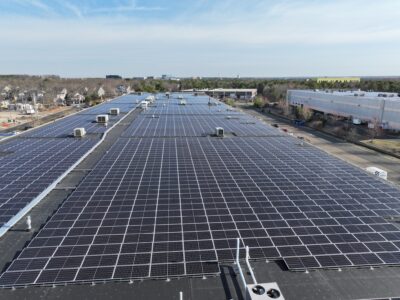Athletes have had a tenuous relationship with changes to the climate. Many don’t want to discuss it out of fear of being too political, while others lack ample knowledge to be public leaders for environmental issues. However, more opportunities for education and awareness are emerging thanks to the work of EcoAthletes, a nonprofit dedicated to promoting climate advocacy and sustainability through professional sports.

Consensus sat down with the nonprofit’s founder Lew Blaustein, who also runs the Green Sports Blog. Since 2013, Blaustein has been pushing heavily for more players to speak out against changes to the climate. “I felt like athletes staying on the sidelines about climate change was not good, and the sports world more broadly, i.e., the teams and the leagues, especially if we’re talking 2013 to 2018. It’s changing now, somewhat … we need to up the ambition on the league side as well as on the team side,” he said.
Influential public personalities couldn’t remain silent on changes to the climate forever. As awareness grew, the messaging needed to become clearer for the players and fans: Climate change is here, and we need everyone to be part of the solution. That’s where these athletes come into play.

The first two, known as EcoAthletes Champions, were Brent Suter and Alexandra Rickham. Suter is a pitcher for the Milwaukee Brewers of Major League Baseball, while Rickham is a Sail GP paralympic sailor. Two very different athletes from sports of varying popularity set the standard for future champions. It doesn’t matter what they play or where. For the nonprofit, what matters is the messaging and the impact generated.
EcoAthletes now boasts a roster of 91 champions across North America, Europe, Australia, and Asia. Each athlete is dedicated to promoting sustainability and climate awareness through strategic sponsorships and endorsements.
“We have some athletes you know, some you don’t know, as you can see by our list. We don’t have Lebron James or Serena Williams; we don’t have a Harry Kane,” Blaustein explained. “But we have a Brent Suter, a Garry Gilliam (who played in the NFL), and we have a Napheesa Collier from the WBNA.”
Although the firm may not work with the highest-profile players, EcoAthletes is stretching its influence and awareness across multiple sports. That’s ideal for organic growth and understanding for fans of all sports. Many of these athletes have sustainability initiatives they’ve personally established. Garry Gilliam, a retired NFL lineman, launched The Bridge, a nonprofit that purchases old abandoned buildings and converts them into eco-villages, sustainable, affordable mixed-use properties. The first will be in Harrisburg, PA. “Athletes have a platform to create change in our communities,” Gilliam said.
EcoAthletes also signed the Sports Community COP 26 Manifesto, an official document presented at COP 26 in Glasgow, Scotland, in August 2021. This effort reaffirmed professional sports organizations’ commitment to reaching carbon neutrality. The mission is about education and raising awareness from the fan in the stands to the team president in the executive suite.
As professional sports teams and leagues commit themselves to further sustainability initiatives, the public eye will be on them. Figuring out transportation methods and doing more than just planting trees as acts of solidarity are vital. According to Blaustein, it will take more than just fighting against Scope 1 and Scope 2 emissions or implementing composting programs; the teams and leagues will have to be able to connect with fans further.
“I think in terms of at the games, you know, really taking on Scope 3 emissions at an aggressive, you know, kind of greenwash proof way is a very important next step,” he said. “You got to get the people who aren’t going to games because that’s the vast majority of sports fans. They watch it on their TV, their computer, or their phone, or they read about it in a newspaper.”
“That to me is where the action needs to be, influencing fans wherever they are, on the need for climate action, both micro — what you can do at home — and macro, which is to vote,” Blaustein said.





